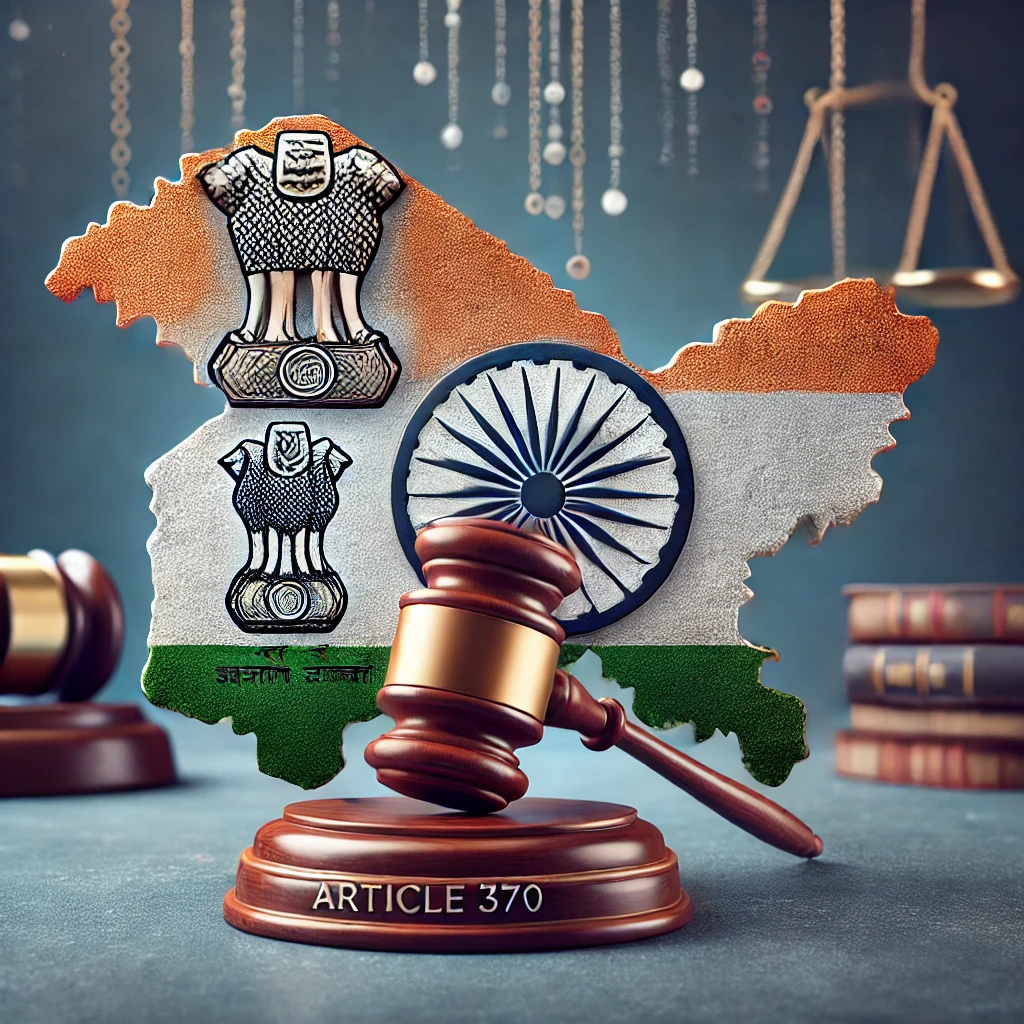
Supreme Court Validates Abrogation of Article 370: A Legal and Political Analysis
On December 11, 2023, the Supreme Court of India upheld the government’s decision to revoke Article 370, officially ending Jammu and Kashmir’s special status. This historic ruling reshapes the legal and political framework of the region, affirming its complete integration into India.
The decision marks a pivotal moment in Indian constitutional history and has significant implications for governance, security, and regional stability. It also settles long-standing debates over the Indian government’s authority to alter the special provisions granted to certain states.
What is Article 370?
• Article 370 was a constitutional provision that granted Jammu and Kashmir a special status, allowing it to have its own constitution, laws, and significant autonomy over internal affairs.
• Unlike other Indian states, Jammu and Kashmir had the power to decide which central laws applied to it, making it unique in India's federal structure.
• In August 2019, the Indian government, led by Prime Minister Narendra Modi, revoked this status, bringing Jammu and Kashmir under the full jurisdiction of the Indian Constitution.
This decision was met with both support and criticism. While many hailed it as a step toward national unity, others saw it as an infringement on Jammu and Kashmir’s autonomy. The matter was challenged in the Supreme Court, leading to this landmark verdict.
The Supreme Court’s Decision
After reviewing the case, the Supreme Court ruled that:
• Presidential Authority – The President of India had the legal authority to revoke Article 370, as the provision was always meant to be temporary.
• Constitutionality of Integration – The move to integrate Jammu and Kashmir fully with India was constitutional and did not violate any legal provisions.
• Elections in Jammu and Kashmir – The court directed the government to conduct elections in Jammu and Kashmir before September 30, 2024, ensuring democratic representation for the region.
The ruling provided legal clarity on the status of Jammu and Kashmir, affirming that the government’s actions were within constitutional bounds.
Implications of the Verdict
1. Political Impact
o The ruling strengthens the central government’s control over Jammu and Kashmir, reinforcing its authority in policy-making for the region.
o It reaffirms the government’s stand that Jammu and Kashmir should be treated like any other Indian state, without special privileges.
o Political parties opposing the move may now need to shift their strategies and focus on governance within the new legal framework.
2. Legal Precedent
o The decision sets a strong precedent that special provisions granted to states can be revoked constitutionally if deemed necessary.
o It clarifies the interpretation of Article 370, ensuring that similar legal challenges in the future are based on this ruling.
o The verdict strengthens the principle that temporary constitutional provisions can be altered in alignment with national interests.
3. Security and Development
o The ruling is likely to influence security policies in Jammu and Kashmir, as the government can now implement uniform laws and policies without legal barriers.
o It may pave the way for increased investments and economic initiatives in the region, as businesses and investors gain confidence in its legal stability.
o Infrastructure development and welfare programs could receive a boost, as the government aims to integrate Jammu and Kashmir with the broader national economy.
Conclusion
The Supreme Court’s ruling on Article 370 is a landmark decision with long-lasting consequences. It has reinforced India’s constitutional framework and provided legal validation for the government’s move to integrate Jammu and Kashmir fully.
While political and social debates on the matter will likely continue, this verdict cements the region’s legal status within India. Moving forward, the focus will be on governance, economic development, and ensuring political representation through the upcoming elections. The ruling has reshaped the political narrative of Jammu and Kashmir, setting the course for its future under the Indian constitutional framework.












comments